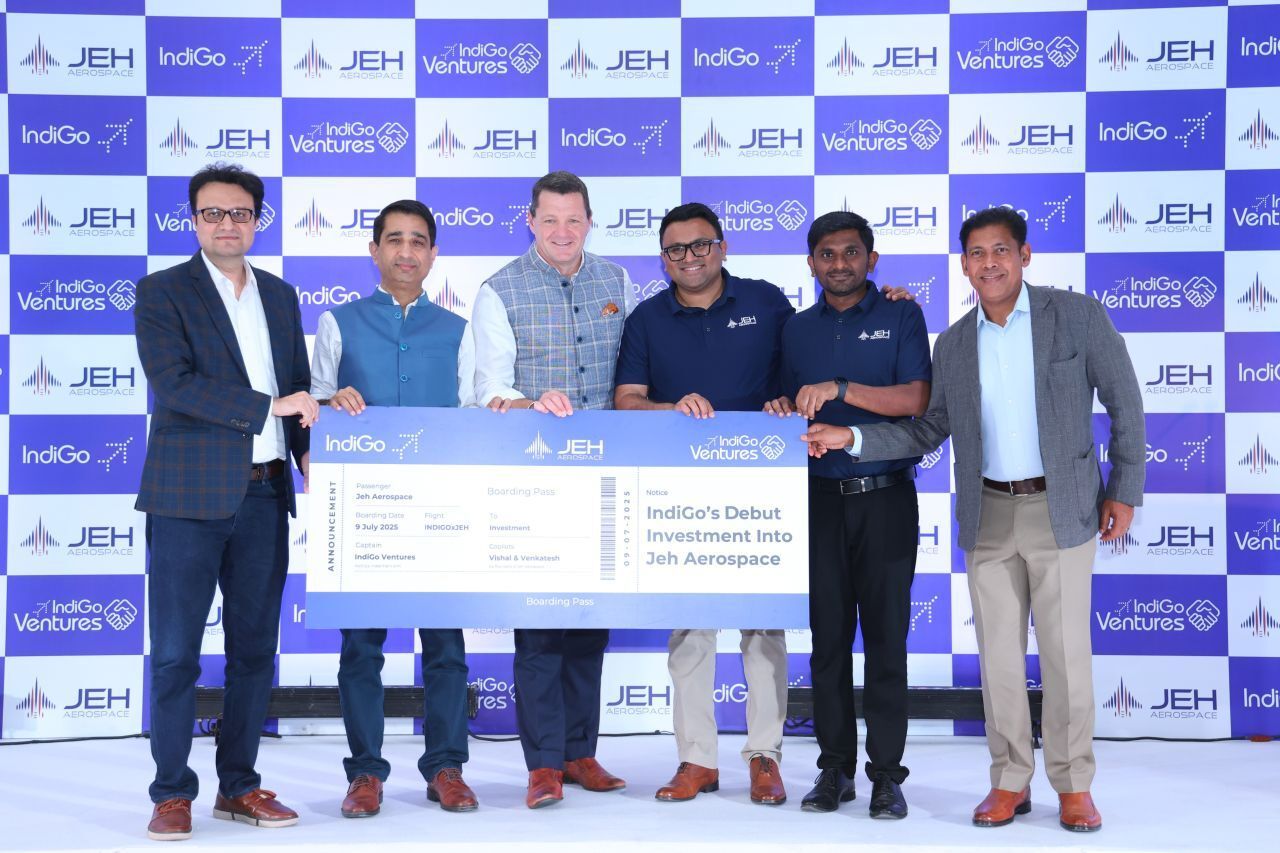- The Brief
- Posts
- Omnichannel, or Obsolete: How Indian Brands Are Scaling Smarter
Omnichannel, or Obsolete: How Indian Brands Are Scaling Smarter
Decode the most important shifts in India's consumer economy with Lightbox
☕🗞️ Good morning! Welcome to The Brief, Edition #11

A pottery workshop in session at The Cafe Upstairs. Image credit: Lightbox
This week we’re talking about omnichannel retail and its emergence as the go-to-strategy for building consumer businesses in India. Also catch up on all the important news and developments from India’s consumer, startup and venture capital markets.
Before we dive in, a quick introduction to who we are.
Lightbox is a Mumbai-born venture capital firm focused on technology-led consumer businesses. Over the past decade we’ve employed a concentrated portfolio construction and deep operational engagement to enable our portfolio companies and limited partners to navigate this market.
India is moving steadily towards becoming a $10 trillion economy, driven by rising consumption and digital adoption. We believe we are uniquely positioned to offer a front-row seat to the most important shifts in the country’s consumer markets. If you’re a global capital allocator, family office, UHNI, or strategic investor looking to participate in the India opportunity — this newsletter is for you.
Let’s get into it.
📡 Signals
Offline Is The New Moat

When we started investing in India back in the early 2000s, the thesis was pretty straightforward. Technology had reshaped markets around the world, and there was no reason India would be any different. PC penetration was just beginning to rise, and we assumed, like many others, that we’d see a similar arc: retail would organize, technology would layer on efficiency, and online would take over. It made sense on paper.
What actually played out has been far more nuanced.
At the time, organized retail was just 4% of the market. Today, it’s about 12% and only part of that is online. So yes, things have moved, but not quite at the pace or in the way many predicted. India never really had its “big-box retail moment.” The mom-and-pop store never got pushed aside. The malls didn’t take over. And yet, venture capital kept betting on a narrative that assumed we’d skip the intermediate steps and jump straight to ecommerce dominance.
That isn’t how this market works.
If most consumption is still offline, then being online-only starts to feel like a constraint, not an advantage. And more importantly, in a market like India, where trust is still a fundamental part of consumer behavior, having a physical presence matters. Offline becomes a way to signal legitimacy, create accountability, and deepen the brand experience.
The shift in our thinking really took off with our investment in Bombay Shirt Company (BSC), back in 2019, and we’ve gone from strength to strength from there. When we invested in BSC, the company already had offline stores. What we didn’t expect was just how good the economics were – the stores broke even within 1–2 months and paid back within 9 months. For a category like apparel, that’s rare. Zeno Health was another pivotal moment. While the market was chasing online pharmacy plays with huge burn and thin margins, Zeno leaned into physical retail. Their thesis was simple: you can’t win on price alone. You have to win trust.
What started as an exception gradually became the rule. Melorra, Furlenco, even Cityflo – each reaffirmed the idea that offline wasn’t just complementary. In many cases, it was the engine. It helped reduce CAC, improve conversion, and strengthen the brand. It also forced discipline. When you’re managing inventory, staff, and real-world logistics, there’s less room for storytelling and more pressure to get the fundamentals right.
While our conviction in the omnichannel approach for building consumer businesses in India hasn’t wavered over the past 10 years, we’re now seeing market validation in the form of established and emerging players adopting the same playbook with vigour.
In fact, as we write this, offline retail is in the midst of an expansion surge.
Offline retail expansion is tipped to grow 18-20% this financial year, led by established players like Aditya Birla Fashion and Trent, Mint reports, citing data from Knight Frank India. By 2030, that growth could accelerate to 25–30%, as nearly 60 global brands prepare to enter the Indian market, competing for premium real estate, especially in malls, the report adds.
A quick rundown of the activity on the ground:
The Aditya Birla Group’s value fashion chain Style Up is set to triple its store count, from 46 to 150, in FY26. Its menswear brand Tasva will scale to 200 stores over three years, and across marquee labels like Louis Philippe, Van Heusen, and Reebok, the group plans to add 300 stores to an already wide footprint.
The Tata Group’s Trent, too, is doubling down. It plans to open 510 new Zudio stores in three years.
Value retail chain V2 Retail has revised its FY26 store target and will expand to 100+ new locations.
The D2C ecosystem isn’t standing still either. Indian-wear brand Libas plans to have 70-75 stores by the end of calendar year 2025 and 150-200 stores by the close of 2026. Luggage brand Mokobara, beauty and personal care products maker Sugar Cosmetics and apparel brand The Souled Store are also moving offline at a rapid pace.
We’ve also evolved our playbook for building successful omnichannel consumer businesses. Having stabilised their platforms, the next frontier for our portfolio companies is to go deep, not wide. Instead of spreading thin across 15 cities, pick one market and own it. Build density. Reinforce the brand. Make every dollar of offline presence work twice as hard for sales and marketing.
We’ll have more to share soon on what we’re calling the ‘density experiment’ at Lightbox. Watch this space.
📰 News
IndiGo Ventures Takes Off; Jio Platforms Delays IPO

Image credit: IndiGo Ventures
IndiGo Ventures takes off with debut fund
IndiGo Ventures has closed its maiden fund at Rs 450 crore. It has also announced its first investment – Jeh Aerospace, a Hyderabad based startup in high-precision aerospace and defence manufacturing. The IndiGo Ventures fund will target companies in the pre-Series A to B stages with an eye on long-term strategic alignment.
Nuvama secondary stake sale attracts new suitors
At least three private equity majors – CVC Capital Partners, Permira and EQT – are in the fray to acquire PAG’s stake in Nuvama (formerly Edelweiss) for a reported $1.6 billion. Nuvama has also been in the news in the context of Jane Street as the latter’s domestic trading partner. PAG acquired a majority stake (55%) in Nuvama about four years ago. The deal, which has been in the works for a few months, reflects the growing momentum for secondaries, whether single asset or multi-asset, in this market.
Reliance delays the most awaited IPO of 2025
Reliance Jio Platforms has postponed its much-anticipated IPO which was planned for this year. The proposed IPO was valued by analysts at $100 billion. The company reportedly wants higher revenues and further boost to revenues before going public. Reliance Jio Platforms is the holding company for mobile network operator Jio and the Reliance Group’s other digital businesses.
Zepto seeks $7 billion valuation in new fundraise
Quick commerce major Zepto is in the market to raise $500 million and is hoping to fetch a post-money valuation of$7 billion. It was last valued at $5 billion. Existing investors General Atlantic and Avenir Growth are expected to lead the deal. So far the company has raised close to $2 billion. Meanwhile, reports suggest that Zepto has been losing users. Zepto and Blinkit were on par with 5.5 million daily active users in December. In June, Zepto had 4.9 million while Blinkit grew to 6.2 million, per Datum Intelligence.
LetsVentures shifts gears to growth investments
LetsVenture, which started out as an angel investments marketplace, has rebranded as LVX, marking its move from early-stage investing to a full-stack platform that supports startups across their growth journey. The firm will now operate through three verticals: LVX Start for seed-stage investments via its angel AIF; LVX Grow for growth-stage funding from VCs, family offices, and UHNIs; and LVX School, an open-source learning platform for founders and investors.
Tesla to launch first India showroom on July 15
Tesla will open its first showroom in India next week, marking its official entry into the market. The launch event for the Mumbai “Experience Center” will be held on July 15 at Maker Maxity Mall in BKC. Alongside showcasing its cars, Tesla is also expected to kick off direct sales in India as part of a renewed push into the country.
We would love to hear from you. Please reply to this email with your thoughts, suggestions, or just to say hello. If you would like to share this newsletter with colleagues, associates and friends in the ecosystem, point them to the Subscribe button below.